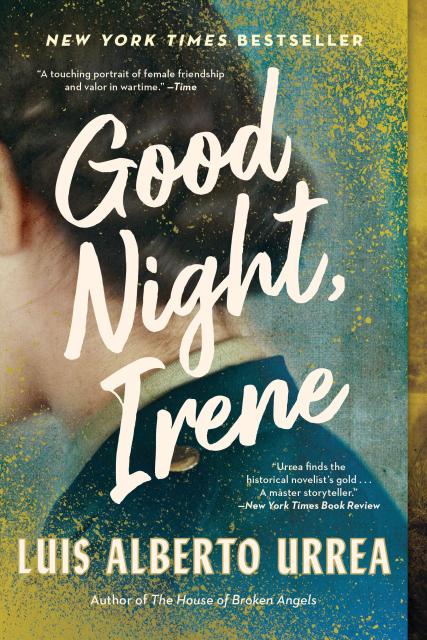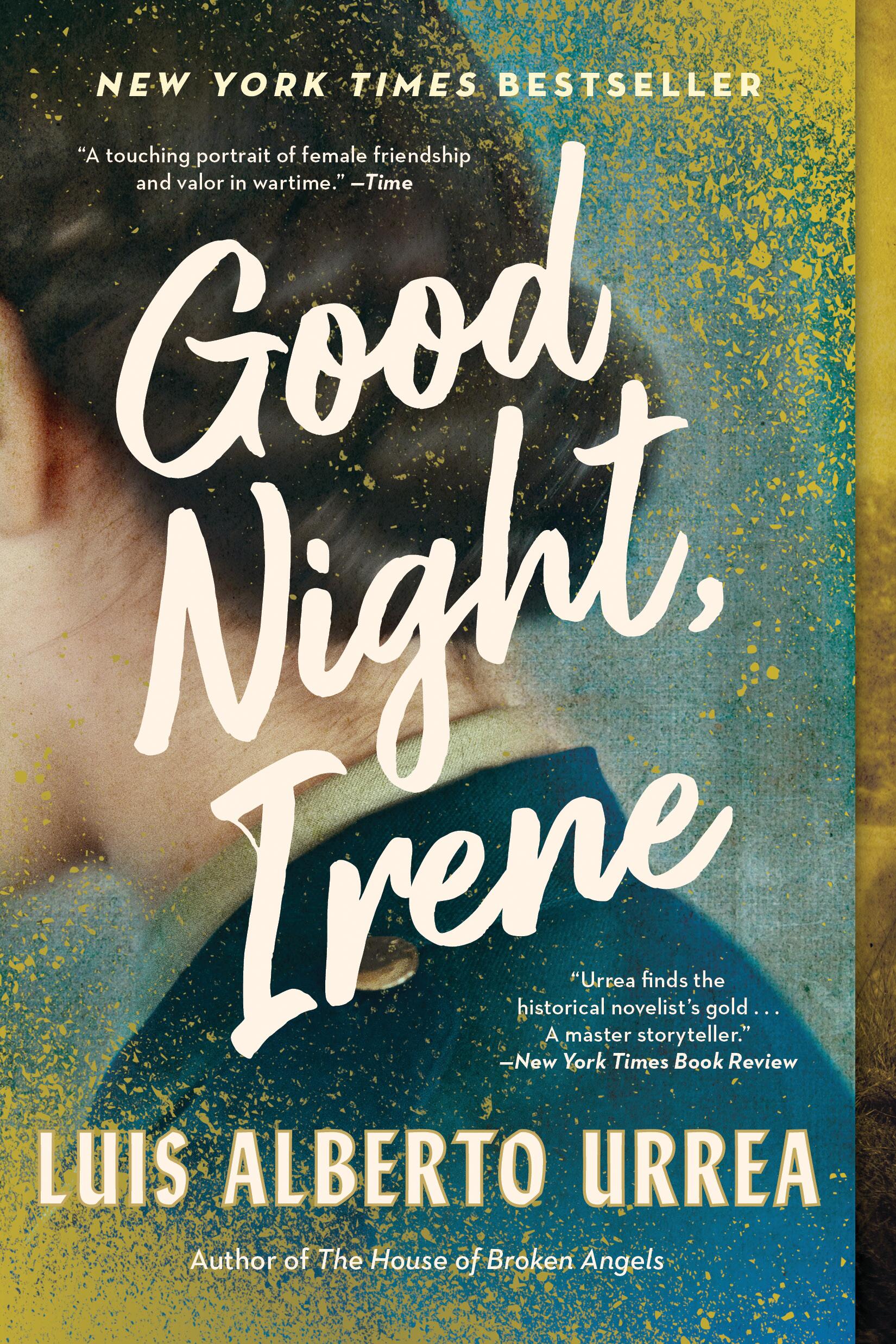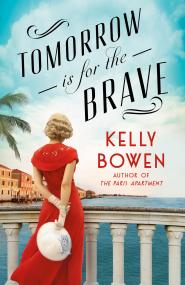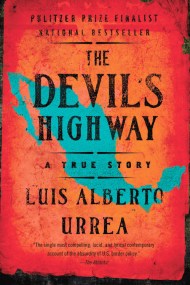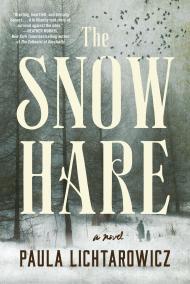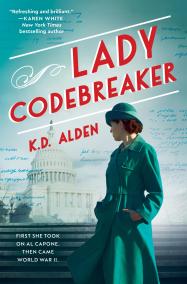By clicking “Accept,” you agree to the use of cookies and similar technologies on your device as set forth in our Cookie Policy and our Privacy Policy. Please note that certain cookies are essential for this website to function properly and do not require user consent to be deployed.
Good Night, Irene
A Novel
Contributors
Formats and Prices
- On Sale
- May 30, 2023
- Page Count
- 336 pages
- Publisher
- Little, Brown and Company
- ISBN-13
- 9780316266055
Price
$11.99Price
$15.99 CADFormat
Format:
- ebook $11.99 $15.99 CAD
- Hardcover $30.00 $39.00 CAD
- Audiobook Download (Unabridged) $31.99
- Trade Paperback $19.99 $25.99 CAD
This item is a preorder. Your payment method will be charged immediately, and the product is expected to ship on or around May 30, 2023. This date is subject to change due to shipping delays beyond our control.
Buy from Other Retailers:
This New York Times bestselling novel tells an exhilarating World War II epic that chronicles an extraordinary young woman’s heroic frontline service in the Red Cross.
“Urrea’s touch is sure, his exuberance carries you through . . . He is a generous writer, not just in his approach to his craft but in the broader sense of what he feels necessary to capture about life itself.” —Financial Times
In 1943, Irene Woodward abandons an abusive fiancé in New York to enlist with the Red Cross and head to Europe. She makes fast friends in training with Dorothy Dunford, a towering Midwesterner with a ferocious wit. Together they are part of an elite group of women, nicknamed Donut Dollies, who command military vehicles called Clubmobiles at the front line, providing camaraderie and a taste of home that may be the only solace before troops head into battle.After D-Day, these two intrepid friends join the Allied soldiers streaming into France. Their time in Europe will see them embroiled in danger, from the Battle of the Bulge to the liberation of Buchenwald. Through her friendship with Dorothy, and a love affair with a courageous American fighter pilot named Hans, Irene learns to trust again. Her most fervent hope, which becomes more precarious by the day, is for all three of them to survive the war intact.
Taking as inspiration his mother’s own Red Cross service, Luis Alberto Urrea has delivered an overlooked story of women’s heroism in World War II. With its affecting and uplifting portrait of friendship and valor in harrowing circumstances, Good Night, Irene powerfully demonstrates yet again that Urrea’s “gifts as a storyteller are prodigious” (NPR).
-
"In the story of the Clubmobile Corps . . . Urrea finds the historical novelist’s gold: an empty space within a well-trodden time period in which to invent a story. He wears his extensive research lightly, but his immersion in the existing documentation is clear . . . a master storyteller."New York Times Book Review
-
“Good Night, Irene paints a touching portrait of female friendship and valor in wartime.”Time
-
“In Good Night, Irene, Urrea pays moving tribute to his mother and her Clubmobile comrades whose wartime service was largely forgotten because, even though they sometimes served under fire, they merely staffed what was called the "chow-and-charm circuit." . . . As befits a contemporary war novel, Good Night, Irene is morally nuanced: It doesn't turn away from scenes of random violence inflicted by our "boys" and it also acknowledges the traumas endured by many who served and survived. Maybe, in Good Night, Irene, Urrea has written yet another powerful "border story" after all: this time about the border between those who live in blessed ignorance of the worst humankind can do and those who keep that knowledge to themselves, often locked in silence.”NPR
-
"Propelled by the crackling banter of a screwball comedy, Urrea's celebration of his mother and "her forgotten sisters-in-arms" is a big-hearted gem."People
-
"Urrea bends a fertile bough from his own family tree in Good Night Irene, a sweeping novel loosely based on his mother's experiences as a plucky, rebellious Red Cross volunteer with the so-called Donut Dollies on the battlefields of WWII, and the love stories — both romantic and platonic — that followed her home."Entertainment Weekly
-
“Good Night, Irene is bound to become a classic of war fiction. Urrea provides a loving portrait of women asked to do the impossible. It’s a complex portrait of what happens to those tender souls who learn to don armor against daily horrors only to find themselves trapped in an emotional iron cage.”Boston Globe
-
“For soldiers mired in despair and scarred, both emotionally and physically, the sounds of these women’s American voices, the silly talent shows they sometimes led and the casual conversations they initiated lent a sense of normalcy and offered a brief respite from the surreal nightmare they were living . . . The magic of these brief encounters is captured beautifully in Good Night, Irene . . . With each turn of the page, a feeling builds that Urrea is on his own quest, a decades-long journey to fill in the blanks of a period in his family history that his mother — struggling with undiagnosed post-traumatic stress disorder — did not want to revisit . . . Urrea has a gift for writing heart-pounding action scenes that are also lyrical.”Washington Post
-
“Usually Urrea writes about issues of the U.S.-Mexican border, but here he’s drawing on a story that derives from his mother’s experiences during World War II . . . We’re getting a Herman Wouk-type big history, but also with a lot of twists and turns and very affecting.”PBS NewsHour
-
"With cinematic verisimilitude and deep emotional understanding, Urrea opens readers’ eyes to the female Red Cross volunteers who served overseas during WWII, delivering donuts, coffee, and homestyle friendliness to U.S. troops . . . WWII fiction fans, who have an abundance of options, should embrace Urrea's vivid, hard-hitting novel about the valiant achievements of these unsung wartime heroines."Booklist
-
"Luis Alberto Urrea writes like he's a Mexican Faulkner . . . Like his prior oeuvre, Good Night, Irene is most profoundly about grace, whether in crisis or during the long reckoning which follows. Centering the triumphant friendship between Irene and Dorothy, this heavily researched novel traces the joyful arc of reconciliation which takes a lifetime to achieve."Electric Lit
-
"Few delights bring as much comfort as good food, so imagine how cheering a good cup of coffee and a fresh donut would have been to soldiers on the front lines in World War II. But also imagine how women recruited to serve food to soldiers might view the value of their contribution when they see the life-and-death sacrifices those men had to make. That’s one of the animating conflicts in the heartfelt novel Good Night, Irene from Pulitzer Prize finalist Luis Alberto Urrea . . . Urrea writes memorable descriptions of war that strike the reader with devastating immediacy."BookPage
-
“Splendidly imagined, exquisitely written, this gutting and glorious story enthralls on every page.”Toronto Star
-
"Like a tightrope artist, Urrea keeps narrative forces in balance, the slang of naïve America in tension with the atrocities of combat . . . Urrea re-creates the time and place beautifully but allows room for surprise, building to the novel's crescendo. Good Night, Irene is a fleet-footed performance by a generous craftsman, underscoring the contributions made by the Greatest Generation's women."Minneapolis Star Tribune
-
"Urrea, inspired by his mother's Clubmobile service, skillfully portrays the miseries the women endure, juxtaposing their witty dialogue and bravado with unsparingly detailed brutalities of war . . . A dramatic climax, despite the story's wartime ironies and horrors, offers a ray of hope amid heartbreak."Shelf Awareness
-
“Good Night, Irene is a beautiful, heartfelt novel that celebrates the intense power and durability of female friendship while shining a light on one of the fascinating lost women’s stories of World War II. Inspired by his own family history—and his mother’s heroism as a Red Cross volunteer during the war—Luis Urrea has created an indelible portrait of women’s courage under extreme adversity. Powerful, uplifting, and deeply personal, Good Night, Irene is a story of survival, camaraderie, and courage on the front line.”Kristin Hannah, #1 New York Times bestselling author of The Nightingale and The Four Winds
-
"A novel with deep roots.... Urrea, not unlike Orwell, writes with a vivid sense of moral outrage.... As an account of a little-known piece of World War II history and a tribute not only to the author’s mother but also to all the veterans of the Clubmobile Corps, Good Night, Irene is moving and affecting, featuring characters with whom we cannot help but engage."Alta Journal
-
"A summer sleeper hit if there ever was . . . Urrea tells a slightly autobiographical story culled from his mother, a Red Cross volunteer during World War II, and a resulting patchwork of memories: friendships, fleeting run-ins, explosions of surrealism, moral abandonment. All of which was held tight for decades by his mother, whose post-traumatic stress went undiagnosed. The beauty of the book is how lightly it wears violence without ever completely removing it from the corner of your eyes. You can feel the Oscar-ready movie bubbling between the lines."Chicago Tribune
-
“Good Night, Irene is a marvel of storytelling, wrenching at times, breathlessly entertaining at others, a testament both to Urrea’s sublime talent and to his mother’s incredible life, which inspired this extraordinary novel.”Jess Walter, #1 New York Times bestselling author of Beautiful Ruins
-
“A moving and graceful tribute to friendship and to heroic women who have shouldered the burdens of war.”Publishers Weekly (starred review)
-
“A heart-wrenching wartime drama, a rich portrait of friendship, and an exploration of the trials and triumphs of the human spirit, Good Night, Irene is historical fiction at its finest. Using the little-known true story of women who worked behind the front lines for the Red Cross during World War II, Luis Alberto Urrea weaves a novel about the enduring bonds, devastating losses, and heroism of ordinary people who put their lives on the line for freedom. This is a story that needed to be told and remembered.”Christina Baker Kline, #1 New York Times bestselling author of Orphan Train and The Exiles
-
"As in his earlier novels, including The Devil’s Highway and The House of Broken Angels, Urrea demonstrates his ability to locate the heartening in the harrowing and heartbreaking. Good Night, Irene hails the camaraderie and deep bonds formed between people thrown together in dire circumstances – though it certainly does not sugarcoat war. What it does do is join a welcome flurry of new books that expand our understanding of women’s important roles in World War II."Christian Science Monitor
-
“Every once in a while the universe opens its heart and pulls out a book like this novel, gifting it to the cosmos. In Good Night, Irene, a new element has been created, and the literary world is reborn in the image of Luis Alberto Urrea. His voice comes alive on every page of this magnificent novel.”Jamie Ford, New York Times bestselling author of The Many Daughters of Afong Moy and Hotel on the Corner of Bitter and Sweet
-
"This is a powerfully written novel. Through the experiences of Irene and her small group of women comrades, the larger historical picture is brought to light."Historical Novel Society
-
“Good Night, Irene isn’t just a marvelous novel, though it is indeed marvelous. It’s a marvelous novel that returns the brave Donut Dollies and the WWII Clubmobile Corps to their rightful place in history. With grace and compassion, Luis Alberto Urrea makes their story soar again.”Ann Hood, New York Times bestselling author of The Knitting Circle
-
“This powerful novel will be with me forever . . .Urrea brilliantly explores the psychologically damaging effects of war even while he conveys how the days of two Red Cross volunteers become ordinary.”Sarah Bagby, Watermark Books, Wichita, KS
-
“Beautiful, flowing language illustrates the bonds between women serving in a little-known capacity in the European theater of WWII . . . As rewarding as historical fiction gets.”Jamie Fiocco, Flyleaf Books, Chapel Hill, NC
-
“Just when you think you have read all of the stories to come out of WWII, the brilliant Luis Alberto Urrea astounds you with this breathtaking and personal novel . . . Good Night, Irene captures every nuance of these heroic women and their battle-tested friendships in a sweeping novel full of heart and grace.”Luisa Smith, Book Passage, Corte Madera, CA
-
"A magnetic read . . .Urrea has crafted a masterful work of fiction drawn from his mother’s firsthand experience in the war. A love affair, friendship, and intense war scenes make this read impossible to put down. It serves as a reminder why we need to read historical fiction.”Kathy Detwiler, Buttonwood Books, Cohasset, MA
-
“Thank you, Luis Alberto Urrea, for introducing me to another group of amazingly brave and overlooked women of WWII . . . A truly remarkable novel that I will recommend to anyone.”Debbie White, Well-Read Moose, Coeur d’Alene, ID
-
“Urrea presents the story of a deep friendship in the midst of a war-torn Western Europe, images of combat that strangle the heart, and a love for life that warms it. Good Night, Irene is a wonder!”Wendy Labinger, Prairie Lights Books, Iowa City, IA
-
“I cried at the end of this incredible novel, it is so good. And tells a story of stalwart, brave, ballsy women . . . Good Night, Irene is a spectacular novel of immense literary merit. I loved it.”Annie Philbrick, Bank Square Books, Mystic, CT
-
“I loved discovering a new area of WWII history . . . Good Night, Irene tells the story of two women facing the war and their fears, developing friendships in brutal conditions, discovering love in the midst of war, and seeing firsthand the horrors that mankind can create.”Elizabeth Barnhill, Fabled Bookshop, Waco, TX
-
“Urrea never disappoints. This WWII historical novel is based on Urrea’s mother and her work with the American Red Cross during the war. His writing is beautiful and you will fall in love with Irene—her grit, determination, and strength.”Annette Avery, Bright Side Bookshop, Flagstaff, AZ
-
“Great read with Urrea’s signature ear for unique, fast-paced dialogue. This lost slice of history in the well-worn tracks of WWII novels is fascinating!"Nancy Shawn, Island Books, Mercer Island, WA
-
Praise for The House of Broken Angels
-
"Epic . . . Rambunctious . . . Highly entertaining . . . Sorrowful and funny . . . Cheerfully profane . . . The quips and jokes come fast through a poignant novel that is very much about time itself . . . A powerful rendering of a Mexican-American family that is also an American family."Viet Thanh Nguyen, New York Times Book Review
-
"A raucous, moving, and necessary book...Intimate and touching...The stuff of legend...There's deep heart and tenderness in this novel.The House of Broken Angels is, at its most political, a border story...Chillingly accurate, they're heartbreaking, and infuriating."Alexis Burling, San Francisco Chronicle
-
"An immensely charming and moving tale...Urrea deftly inhabits many points of view, dreaming up an internal voice for each...It is a testament to his swift and lucid characterizations that one does not want to leave this party...A novel like The House of Broken Angels is a radical act. It is a big, epic story about how hard it is to love with all of your heart, and all of your family--regardless of which side of the border they live on."John Freeman, Boston Globe
-
"The House of Broken Angels is a big, sprawling, messy, sexy, raucous house party of a book, a pan-generational family saga with an enormous, bounding heart, a poetic delivery, and plenty of swagger...More than once while reading the novel, I thought of James Joyce's 'The Dead,' another kaleidoscopic fable of family life that skillfully mixes perspectives...The House of Broken Angels is a book about celebration that is, itself, a celebration."Michael Lindgren, Washington Post
-
"Urrea's gifts as a storyteller are prodigious...The book's spirit is irrepressibly high. Even in its saddest moments, The House of Broken Angels hums with joy...The noveloverflows with the pleasure of family...And all that vulnerability, combined with humor and celebration and Urrea's vivid prose, will crack you open."Lily Meyer, NPR
Newsletter Signup
By clicking ‘Sign Up,’ I acknowledge that I have read and agree to Hachette Book Group’s Privacy Policy and Terms of Use
